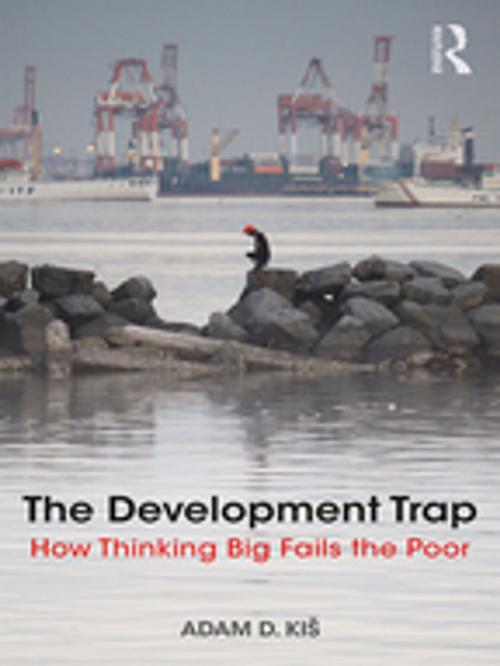The Development Trap
How Thinking Big Fails the Poor
Nonfiction, Social & Cultural Studies, Social Science| Author: | Adam D. Kiš | ISBN: | 9781351273787 |
| Publisher: | Taylor and Francis | Publication: | March 5, 2018 |
| Imprint: | Routledge | Language: | English |
| Author: | Adam D. Kiš |
| ISBN: | 9781351273787 |
| Publisher: | Taylor and Francis |
| Publication: | March 5, 2018 |
| Imprint: | Routledge |
| Language: | English |
A wave of optimism is sweeping through the international aid and development industry, championed by leaders such as Jeffrey Sachs and Jim Yong Kim, who believe that poverty eradication could be within our grasp. Yet in stark opposition come those who believe that all international development intervention is hegemonic, paternalistic, and neocolonialist and must be done away with. In this book, the author argues for a middle ground. Poverty is an entrenched, intractable problem that will never be entirely eradicated. However, if we reorientate our objectives in line with realistic goals that improve the way that poverty is confronted on a smaller scale, we can still continue the fight for meaningful change.
Using rigorous scholarship illustrated with vivid storytelling and personal anecdotes from fighting against poverty in the field, The Development Trap argues that we need to make progress against poverty on the micro, rather than the macro scale. Instead of shooting for a single overarching end of poverty, our goals must be modest and reachable.
A wave of optimism is sweeping through the international aid and development industry, championed by leaders such as Jeffrey Sachs and Jim Yong Kim, who believe that poverty eradication could be within our grasp. Yet in stark opposition come those who believe that all international development intervention is hegemonic, paternalistic, and neocolonialist and must be done away with. In this book, the author argues for a middle ground. Poverty is an entrenched, intractable problem that will never be entirely eradicated. However, if we reorientate our objectives in line with realistic goals that improve the way that poverty is confronted on a smaller scale, we can still continue the fight for meaningful change.
Using rigorous scholarship illustrated with vivid storytelling and personal anecdotes from fighting against poverty in the field, The Development Trap argues that we need to make progress against poverty on the micro, rather than the macro scale. Instead of shooting for a single overarching end of poverty, our goals must be modest and reachable.















